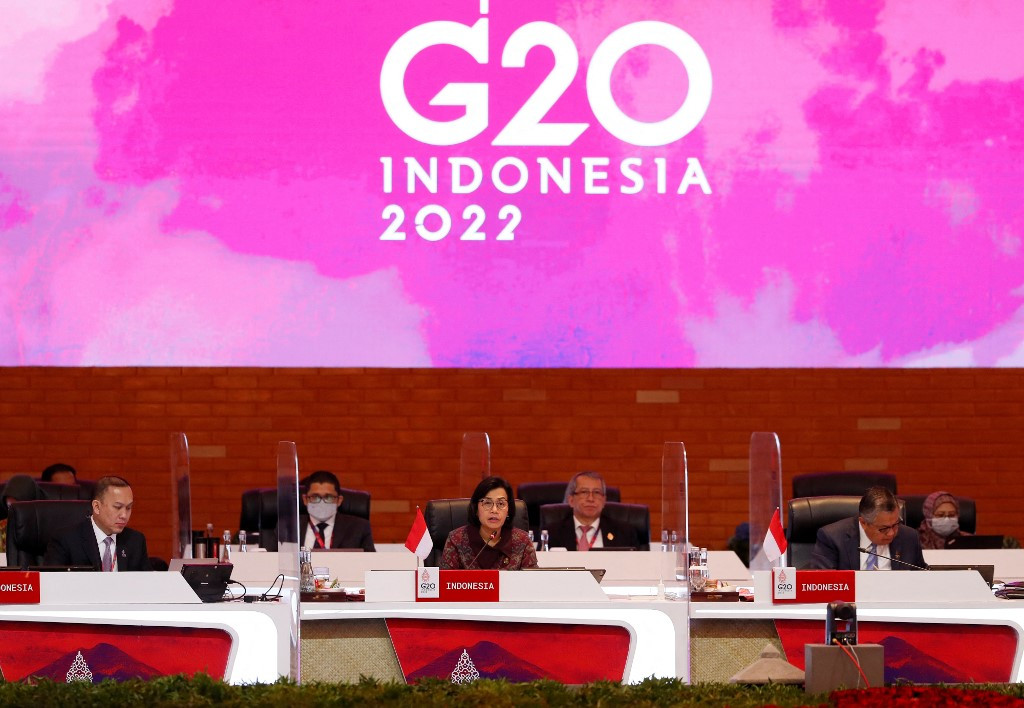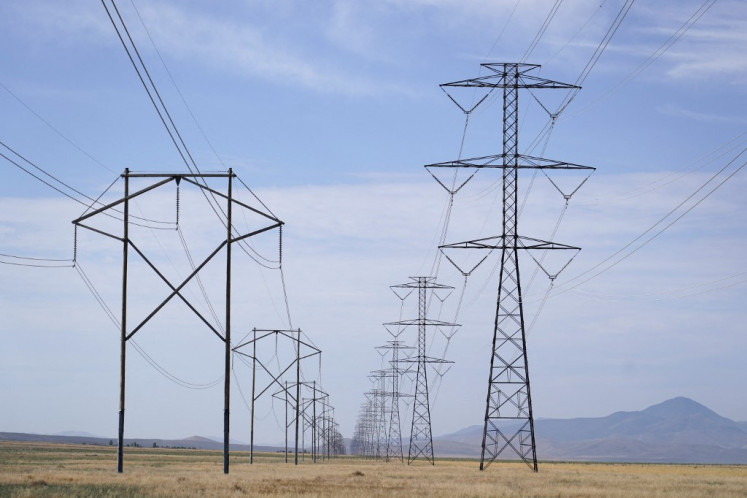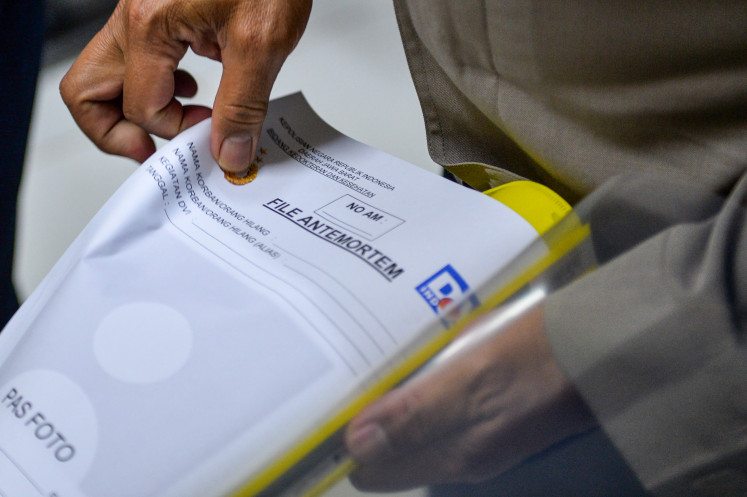RI proposes G20 joint forum to fight food crisis
Finance Minister Sri Mulyani Indrawati reminded member countries that expectations for the meetings were high and that a failure to reach their objectives would result in dire consequences, especially for low-income countries.
Change text size
Gift Premium Articles
to Anyone


Finance Minister Sri Mulyani Indrawati called on Friday for the Group of 20 to take concrete action to tackle ongoing food and energy crises and appealed to member countries to engage in more discussion and less politics amid the escalating global impact of the war in Ukraine.
Sri Mulyani, on behalf of G20 host Indonesia, expressed concern about the global energy crisis and growing food insecurity resulting from surging commodity prices and supply shortages induced by Russia’s invasion of Ukraine, noting that the issues were threatening the recovery from the pandemic and macroeconomic stability.
She reminded member countries that expectations for the meetings were high and that a failure to reach their objectives would result in dire consequences, especially for low-income countries.
“We are hoping we can discuss more and be less political regarding real technical issues that matter to all of us,” Sri Mulyani said in her opening remarks at the third Finance Ministers and Central Bank Governors (FMCBG) meeting.
“We believe the world desperately needs more and more bridges and more action, not walls and war,” she added.
The Bali meeting came after a raucous second FMCBG session in Washington, DC, that saw finance ministers, led by the United States, walk out in protest of Russia’s presence at the forum after its invasion of Ukraine.
A day before Sri Mulyani gave her remarks, US Treasury Secretary Janet Yellen called Russia's war in Ukraine the "greatest challenge" to the global economy and said members of Russian President Vladimir Putin's government had “no place” at the talks.
Read also: Yellen says Russia's war in Ukraine 'greatest challenge' to global economy
While a number of countries strongly condemned Russia, there were no walkouts on Friday as ministers attended multiple gatherings to address the food and energy crises.
Yellen, speaking at the opening session on Friday, welcomed Ukrainian Finance Minister Serhiy Marchenko, who attended the meeting virtually, and blamed the negative spillovers of the war "solely" on Russia, a Treasury official said, as quoted by Reuters.
Canadian Finance Minister Chrystia Freeland told Russian officials at a meeting of G20 finance officials that she held them personally responsible for "war crimes" in Ukraine.
Freeland directly addressed the Russian delegation taking part in the G20 meeting, telling them, "It is not only generals who commit war crimes; it is the economic technocrats who allow the war to happen and to continue.”
Russian Deputy Finance Minister Timur Maksimov was in Bali for the meetings, while Finance Minister Anton Siluanov was participating virtually, a source familiar with the matter told the The Jakarta Post.
The G20 talks commenced amid surging commodity prices and skyrocketing inflation in much of the world resulting from the Ukraine war. Sri Mulyani blamed the problem on sanctions and export restrictions, among other causes.
She also noted that quick monetary tightening was also making it more difficult for many countries to service their debt and that the war was threatening energy transition and emissions reduction targets.
Read also: Millions of lives at stake if G20 fails to act: Jokowi
Indian Finance Minister Nirmala Sitharaman noted on Thursday that the war had led to surging energy prices, including for natural gas, which many countries had been using as an intermediate step in their green transitions to give up coal.
Sitharaman said the transition had become extremely expensive, putting commitments to move away from fossil fuels at risk.
“That’s why many countries [… are] reverting to the use of coal. Not justifying it, but let’s remember that we can’t be unrealistic in setting goals,” she said.
Later that day, at a seminar on the food crisis, Sri Mulyani, on behalf of host Indonesia, called on member countries to explore possible action to address growing food insecurity.
The success of the previously formed the G20 Joint Finance-Health Task Force, which established a financial intermediary fund (FIF) for global pandemic preparedness, could set a precedent for the food initiative.
“The G20 could urgently convene a joint G20 finance and agriculture ministers’ meeting to improve coordination […] and explore action to address growing food insecurity and related issues,” Sri Mulyani said during the high-level seminar, which was also attended by Yellen and Saudi Arabian Finance Minister Mohammed Al-Jadaan.
Yellen, at the same event, blamed Russia for the global food insecurity but supported a collective approach to the problem.
“[Putin’s] actions, including the destruction of agricultural facilities, the theft of grain and farming equipment and the effect of the blockade of Black Sea ports, amount to using food as a weapon of war,” she said.
She encouraged the use of a global food alliance formed by the Group of Seven and called for increased support for existing organizations such as the FAO and WTO. Yellen said G20 countries would have to take steps to provide financial assistance in that regard but did not elaborate further.









